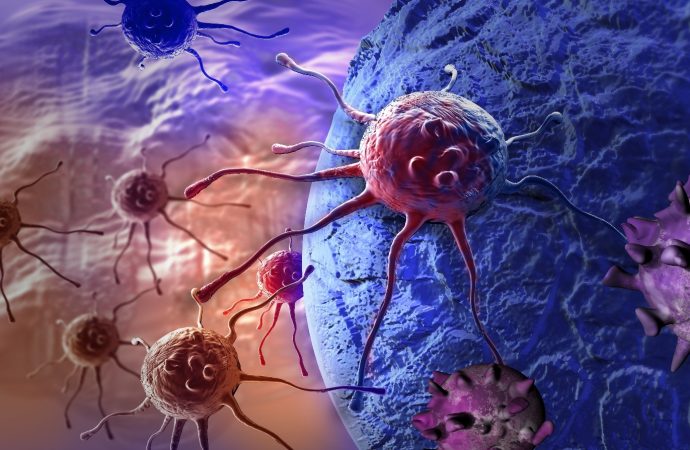Cancer remains one of the most formidable challenges in modern medicine, characterized by its complexity and variability. Traditional cancer treatments, such as chemotherapy and radiation, often adopt a one-size-fits-all approach, which can lead to varied outcomes and significant side effects. However, the advent of genomics is revolutionizing the landscape of cancer treatment, ushering in the
Cancer remains one of the most formidable challenges in modern medicine, characterized by its complexity and variability. Traditional cancer treatments, such as chemotherapy and radiation, often adopt a one-size-fits-all approach, which can lead to varied outcomes and significant side effects. However, the advent of genomics is revolutionizing the landscape of cancer treatment, ushering in the era of personalized medicine. This article delves into the critical role of genomics in personalized cancer treatment, exploring how genomic insights are transforming diagnosis, treatment, and patient outcomes.
Understanding Genomics in Cancer
Genomics is the study of the complete set of DNA, including all of its genes, in an organism. In the context of cancer, genomics focuses on understanding the genetic mutations and alterations that drive the development and progression of cancer. These genetic changes can vary significantly between different types of cancer and even among patients with the same type of cancer.
Cancer is fundamentally a genetic disease, caused by mutations in genes that regulate cell growth and division. These mutations can lead to uncontrolled cell proliferation, ultimately forming a tumor. By analyzing the genomic profile of a cancer, researchers and clinicians can identify specific mutations that are driving the disease. This information is invaluable for developing targeted therapies that are tailored to the genetic makeup of an individual’s cancer.
Genomic Profiling and Diagnosis
One of the most significant contributions of genomics to cancer treatment is the ability to perform comprehensive genomic profiling. This process involves sequencing the DNA of a tumor to identify genetic mutations and alterations. Genomic profiling provides a detailed map of the genetic landscape of a cancer, revealing key mutations that can be targeted with specific therapies.
For example, in breast cancer, genomic profiling can identify mutations in the BRCA1 and BRCA2 genes, which are associated with an increased risk of developing the disease. Similarly, in lung cancer, mutations in the EGFR gene can be identified, allowing for the use of targeted therapies such as tyrosine kinase inhibitors. By identifying these mutations, clinicians can make more accurate diagnoses and develop personalized treatment plans that are tailored to the genetic profile of the cancer.

Picture by: Yandex.com
Targeted Therapies
One of the most promising aspects of genomics in cancer treatment is the development of targeted therapies. Traditional cancer treatments, such as chemotherapy, often affect both cancerous and healthy cells, leading to significant side effects. In contrast, targeted therapies are designed to specifically target the genetic mutations that drive cancer, minimizing damage to healthy cells.
Targeted therapies work by inhibiting the activity of specific proteins or pathways that are essential for the growth and survival of cancer cells. For example, in melanoma, mutations in the BRAF gene can be targeted with BRAF inhibitors, which block the activity of the mutated protein and inhibit tumor growth. Similarly, in chronic myeloid leukemia (CML), the BCR-ABL fusion gene can be targeted with tyrosine kinase inhibitors, leading to significant improvements in patient outcomes.
The success of targeted therapies hinges on the accurate identification of genetic mutations through genomic profiling. By tailoring treatment to the specific genetic alterations present in a cancer, targeted therapies can achieve higher efficacy and lower toxicity compared to traditional treatments.
Immunotherapy and Genomics
Immunotherapy, which harnesses the body’s immune system to fight cancer, has emerged as a groundbreaking approach in cancer treatment. Genomics plays a crucial role in advancing immunotherapy by identifying biomarkers that predict a patient’s response to these treatments.
One of the most well-known examples of immunotherapy is the use of immune checkpoint inhibitors, which block proteins that inhibit the immune system’s ability to attack cancer cells. Genomic profiling can identify mutations in genes such as PD-L1 and CTLA-4, which are associated with the effectiveness of immune checkpoint inhibitors. By selecting patients with these genetic markers, clinicians can improve the likelihood of a successful response to immunotherapy.
Additionally, genomics is driving the development of personalized cancer vaccines. These vaccines are designed to stimulate the immune system to recognize and attack cancer cells based on the specific mutations present in a patient’s tumor. By leveraging genomic information, personalized cancer vaccines can be tailored to the unique genetic profile of each patient’s cancer, enhancing their effectiveness.
Liquid Biopsies and Monitoring
Traditional biopsies involve the removal of tissue samples from a tumor for analysis. While effective, this approach can be invasive and may not always capture the full genetic diversity of a cancer. Liquid biopsies, on the other hand, offer a less invasive alternative by analyzing circulating tumor DNA (ctDNA) in a patient’s blood.
Liquid biopsies enable real-time monitoring of a cancer’s genetic profile, allowing clinicians to track the emergence of new mutations and assess the effectiveness of treatment. This approach is particularly valuable for detecting minimal residual disease (MRD) and identifying potential resistance mechanisms to targeted therapies.
By providing a dynamic view of a cancer’s genetic landscape, liquid biopsies enable more informed treatment decisions and facilitate the early detection of disease recurrence. This technology represents a significant advancement in the field of personalized cancer treatment, offering a non-invasive and comprehensive method for monitoring cancer progression.
Challenges and Future Directions
While the role of genomics in personalized cancer treatment is promising, several challenges remain. The complexity of cancer genomes, the heterogeneity of tumors, and the potential for resistance to targeted therapies are significant hurdles that need to be addressed.
Moreover, the integration of genomic data into clinical practice requires robust infrastructure, including advanced sequencing technologies, bioinformatics tools, and trained personnel. Ensuring equitable access to genomic testing and personalized therapies is also a critical consideration, as disparities in healthcare can impact patient outcomes.
Despite these challenges, the future of genomics in cancer treatment is bright. Advances in sequencing technologies, artificial intelligence, and machine learning are poised to enhance our ability to interpret genomic data and develop more effective personalized therapies. Collaborative efforts between researchers, clinicians, and industry stakeholders will be essential in driving the continued progress of genomics in cancer treatment.
Conclusion
Genomics is transforming the landscape of cancer treatment, offering unprecedented insights into the genetic underpinnings of the disease. Through genomic profiling, targeted therapies, immunotherapy, and liquid biopsies, personalized cancer treatment is becoming a reality. By tailoring treatment to the unique genetic profile of each patient’s cancer, genomics holds the promise of improving patient outcomes and reducing the burden of cancer. As we continue to unravel the complexities of the cancer genome, the role of genomics in personalized cancer treatment will only continue to grow, paving the way for a new era of precision medicine.
















